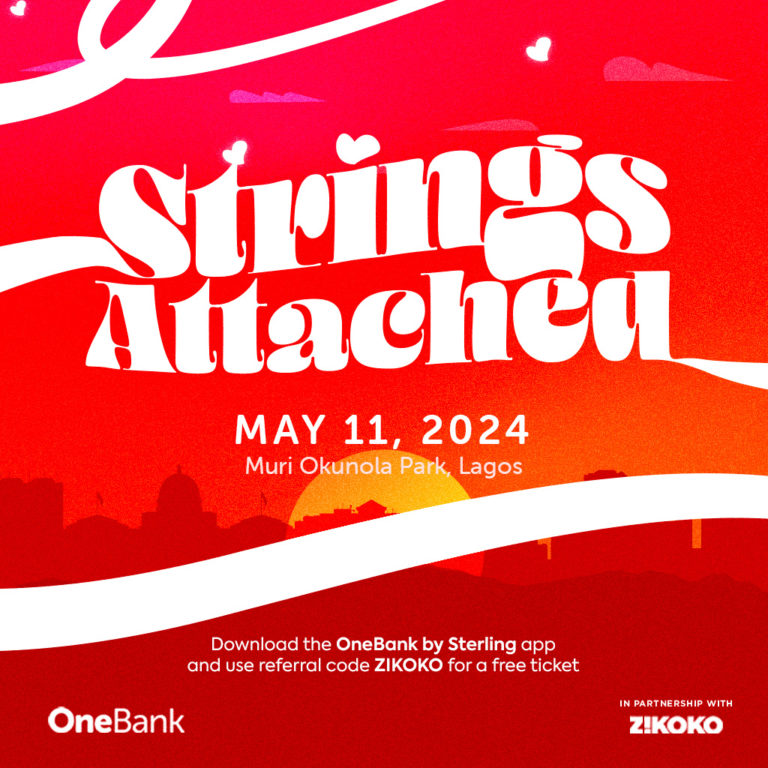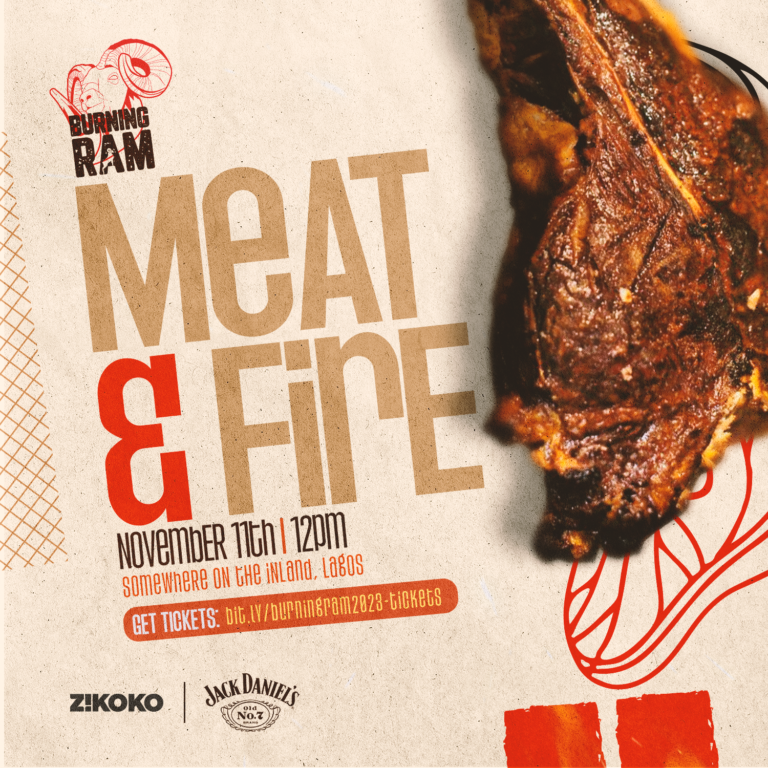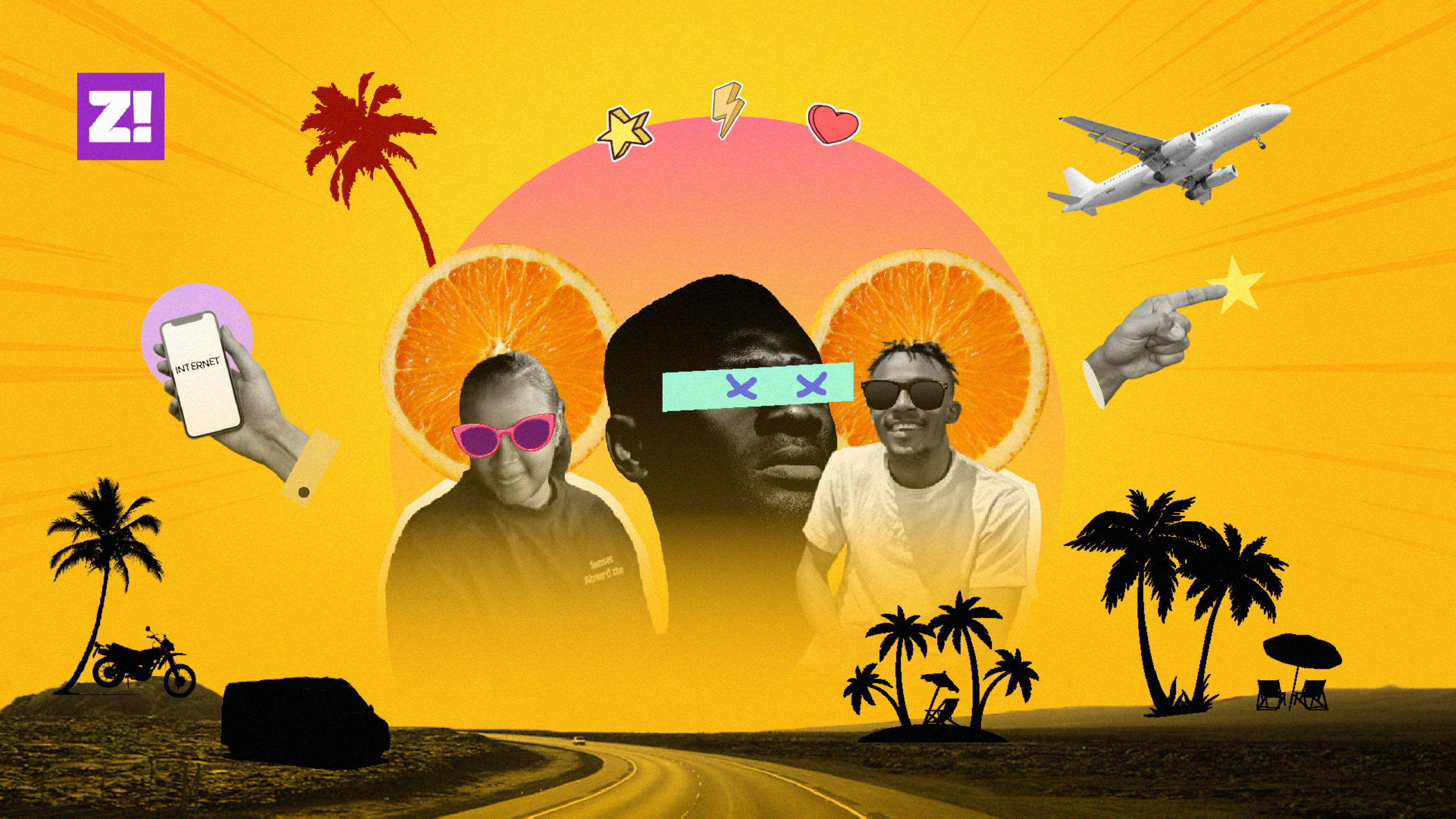This week’s What She Said is Olusayo Ajet, an artist, academic, engineer, biochemist and researcher. She talks about how art was her tool of escape, her relationship with her family and how she experiences the world one day at a time.
Tell me about how you started making art.
I don’t necessarily have a moment when I realised I could draw. But when I was young, I used to just doodle, paint, mess around and copy magazine pictures and storybooks. I never thought it would become something like this. I was kind of a loner; I would read books and play on my own, so drawing was a good activity because I could focus only on what my hands were doing — I didn’t have to think too much.
Was there pushback from your parents or in school?
Not quite. I was a big nerd, so I was good at school and my teachers couldn’t complain. Science, maths and drawing were fun to me. When drawing became more meaningful to me, I became secretive about it because then taking it away would hurt. Initially, it wasn’t a big deal.
Your parents didn’t know at all? For how long?
I would say from JSS 2 to after university. At first, I was just a child interested in drawing like other children. When I was in secondary school, I was a few years younger than my mates in class. My mum owned a primary school that I would go to in the evenings. There, I did chalk drawings on the board in random classrooms — it was like a mini-graffiti big secret.
I came out of the creative closet in my NYSC year. That’s about seven years of hiding.
Wow. Are you a deadbeat dad?
Lol. When I kept it a secret, it was to protect my interests. I didn’t want feedback, I wanted to do my own thing, and I did for a long time. Now I’m grateful for this history because it’s helped me have a clear creative vision. I know what I like without external influences. I don’t do art to be liked, though it helps on the business side of things. I have a clear idea of what I’m into, so I go for my niche.
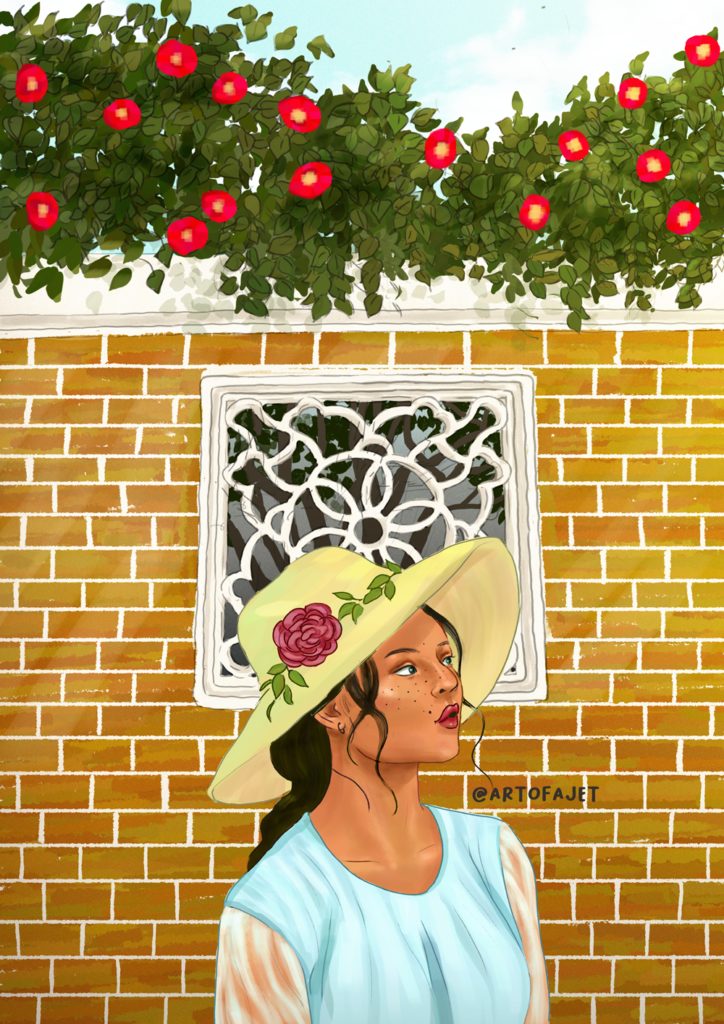
I’m happy for you. Tell me about your difficulties relating with people.
This is a bit heavy. I’ve suffered from mental illnesses since I was a young child. I didn’t know that was what it was; I just knew that I didn’t feel right and things didn’t feel right. I gravitated towards solo activities; reading, writing, drawing, stuff I was comfortable because I struggled to interact with others. I didn’t have a word for it then, but now I can tell that it was anxiety and depression. Talking to people and trying to make friends was extremely uncomfortable. It also didn’t help that my parents were extremely protective. We weren’t allowed to go out; we got picked up after school, so we couldn’t walk home with friends — now that I think about it, that was a really comfortable life and maybe being sheltered wasn’t so bad. But I could have used some of the social skills.
We also weren’t allowed to watch cable TV, and when my friends were in class talking about the shows they watched, I hadn’t the slightest clue what they were on about. My parents said watching TV, cartoons would make you fail — they didn’t care about social skills or life skills. Just read and pass. But cartoons were all kids talked about, and what they did after school. I was not around for any of that and was not cool enough to put myself in the conversations. I ended up in my head a lot. What else was there to do?
Why do you think your parents were so strict?
I can’t speak for them, but I think that in their time, education was the ticket out of poverty. Today, it doesn’t really matter what degree you have, what does is who you know.
Ah.
Also, I was born and raised in Port Harcourt. It’s a huge melting pot where all the south-south ethnic groups mix together and speak their languages.
Do you think this affected you socially?
Not really. What affected me was the insecurity issue in PH, which was what made my parents overprotective.
Are you still in Port Harcourt?
I’m in Lagos for a residency now. I’ve moved around a lot in my life — with my family and by myself. My dad always travelled for work to all kinds of places and that’s something I wanted to do as well. As soon as I finished uni, I moved to Plateau state for NYSC, then London for my Masters. I came back to Nigeria by request of my parents — I didn’t want to, but I didn’t have a mind of my own, so I let them make the decisions for me.
Hot tears.
I went back to Port Harcourt, but then because they had made this decision for me and things did not go the way they expected it, I realised I should have done what I wanted. I decided to start figuring life for myself — who I am and what I really wanted — so I could make decisions for myself. My parents are just people like me: they don’t have all the info. I couldn’t keep waiting for them to tell me what to do.
My dad had an apartment in Sapele, Delta, and I moved there and got a pet. When my parents tried to get me back to Port Harcourt, I said, okay, I’m going to move farther.
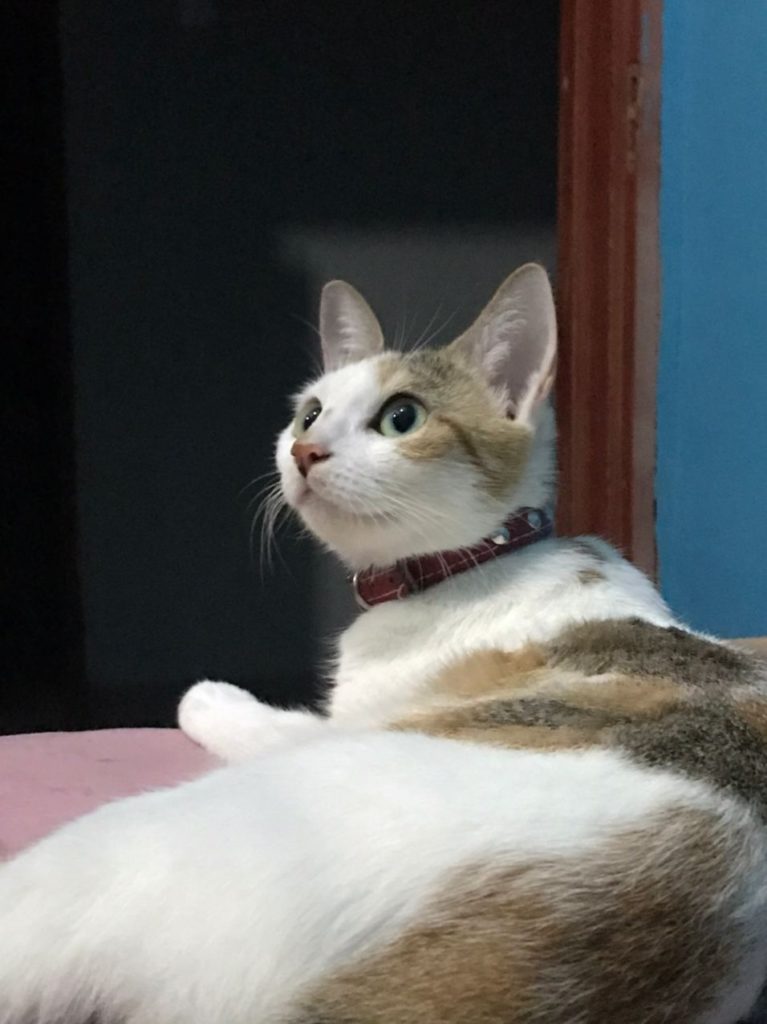
I came to Lagos for nine months. Technically, I ran away from home. There was a lot of friction between me and my parents at that time, and I was like, “Look, you have your ideas and I have mine. And I am going to do what I want to do. If it doesn’t work out, at least it was my decision.”
They thought I was being foolish and making a mistake. I thought they should have had some more faith in me.
Lagos wasn’t helping; it was tough on me. Plateau had been rough: there was no access to running water and I was living a humbler life than I was used to, and London was quite lonely. But none of that prepared me for Lagos. After four months in Lagos, I had decided I would leave, but I had work and projects tying me down. I started strategising, and once things I needed fell into place, I moved to Ibadan. I chose Ibadan because right after secondary school, I’d lived in Ibadan with my aunt. I think of that time as one of the best of my life, so It made sense to move there.
I spent a year and a half in Ibadan before moving back to Lagos for my research fellowship. It wasn’t all happy, but I needed the fresh air and the space to sort myself out — go inwards and figure out my issue. And I feel so much happier for it.
I’m glad. How is your relationship with your parents now?
Experiencing life — paying rent, bills, taking care of myself — helped me appreciate my parents a lot more. I matured augmentally. Everything brought me to a place of clarity — I can see them for who they are and appreciate them as flawed humans just like me. They aren’t mini-gods who can do no wrong or have no flaws. Now that I see them for who they are, I can love them as they are and not as I’d like them to be. And I think they feel the same way about me. I’m no longer an extension of them that will live out their dreams. They have come to understand that I’m an independent individual.
Our relationship hasn’t gone back to the way it used to be, I don’t think it ever will and I don’t want it to.
Does this clarity extend to your siblings?
I love my siblings very much and I do all I can to support them. They understand me the most. And I’m just so stoked to be in their life. They are the light of my life.
There’s a lot of things I used to take for granted and now I’m like, “Wow, this is so precious.” I think my family is one of those things. As rough as my relationship with my parents was, I think my parents did their best. My family — both nuclear and extended — is quite fantastic. The things I hear about other people’s family issues makes me realise I’m very lucky.
This is so wholesome. Does it extend to people outside your family?
Oh yes definitely. For me, it’s about coming to a place of wholesomeness and taking the time to release myself. It’s all intentional. I’ve been intentional about being loving and kind. I practice with my family to figure out the best way to be a good person to other people because I think if I mess up with my family, they will forgive me. They are the ones who would be most honest and give me feedback like, “Omo this thing you did e no make sha.”
I want a situation where I can take a genuine interest in the people in my life rather than project my ideas on them, and just experience them as they are. That’s the key to having good relationships.
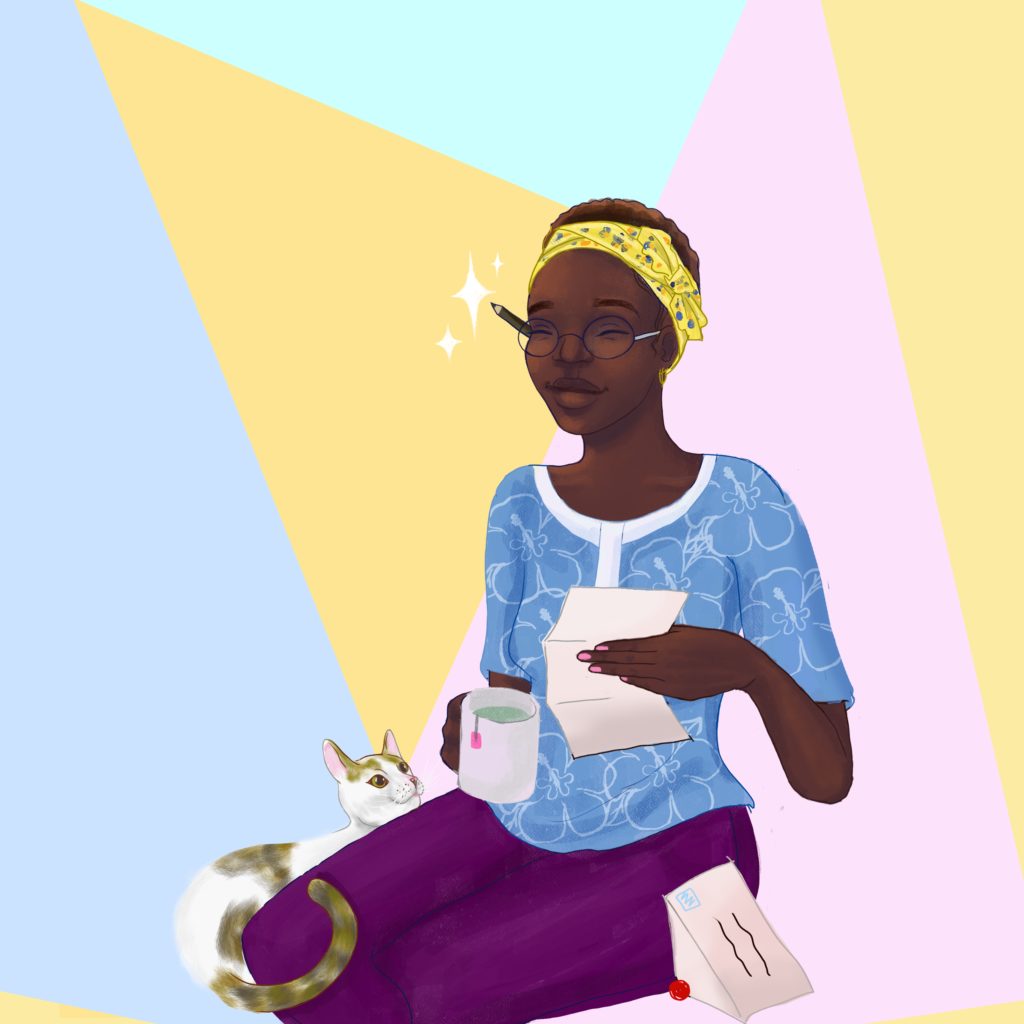
As someone who’s been alone for a long time, I’ve obsessed over what makes good relationships and friendships. It sounds kind of sad to hear, but I think that process of being deliberate has helped my relationships.
What’s it like being an academic, scientist, artist etc.?
People are expected to fit into boxes and they are afraid to be too many “conflicting” things. It’s annoying because sometimes people try to categorise me. I tend to feel awkward when people ask me “Oh what did you do in school?” Because the next question is usually, “So why are you doing this?”
It’s so many things I’ve done that are seemingly unrelated, and I don’t mind. I just tell people I’m an artist even though I’m also an engineer, a researcher, a biochemist, and I have been good at all these things.
For artists and people who are interested in adventures, get as much as you can out of life and do not be afraid to reinvent yourself and become as many different things as you can be. Nobody is just one label, and that’s how I live. You can be one thing today, and something else the day after. When it comes down to it, what matters is that I’m a woman living her life on her own terms.


